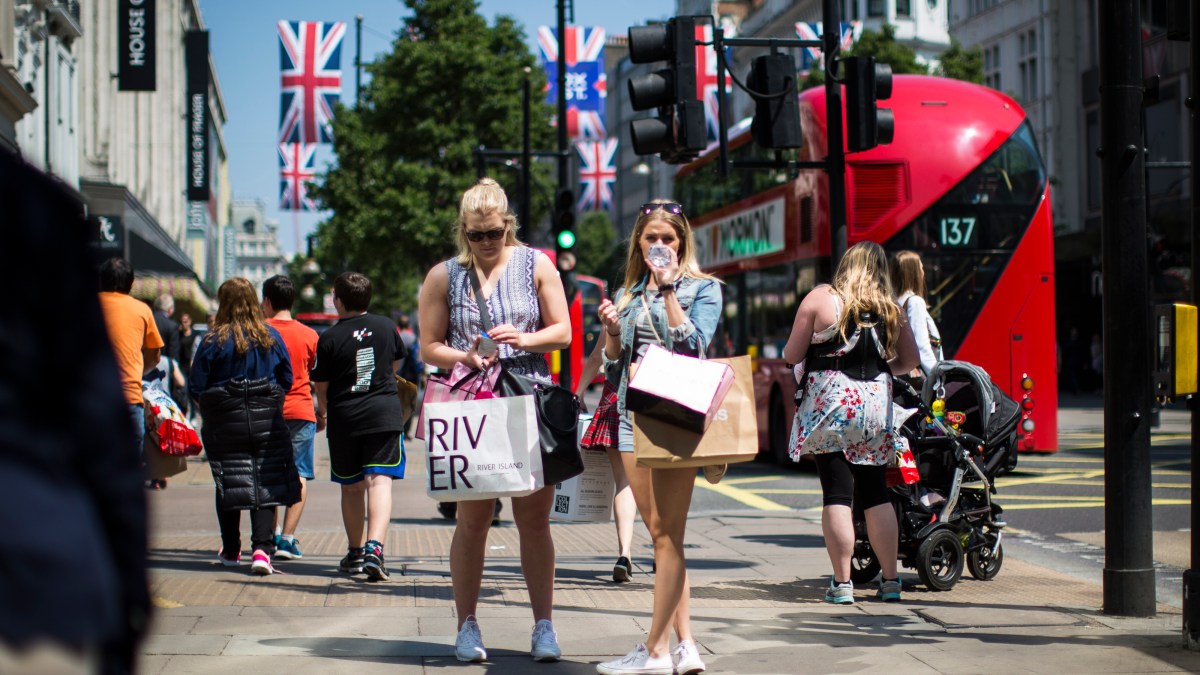Close to £1 billion was knocked off the stock market value of some of Britain’s biggest retailers on Tuesday amid fears that the looming prospect of tax increases and job losses is putting another big dent in consumer confidence.
Analysts at Deutsche Bank warned that their “fear index” is now pointing to “growing consumer concerns” in the UK, with the jobs market weakening, inflation rising again and people worried about tax rises in the autumn budget.
“There is a fear that the concerns created by the tax-raising measures seen in the 2024 November budget will repeat in the 2025 budget, which will have a negative impact on spending,” they wrote.
Deutsche’s analysis of households cash flows suggests that consumers are already spending less than they could, partly reflecting a growing fear of unemployment.
Assuming people do not start to reduce their savings, the analysts expect to see a slowdown in discretionary spend across the rest of 2025. They said those on lower incomes are generally being hit hardest by higher inflation, which is why they downgraded Associated British Foods to “sell”. The FTSE 100 conglomerate owns Primark, which is known for inexpensive clothing. Next, another high street fashion retailer, is also on their “least preferred” list.
As well as clothes, Deutsche expects Britons to cut back further on home improvements — bad news for DIY retailers, which have already endured two years of slow sales. Wickes was cut to “sell” and Kingfisher, the B&Q owner, was moved to “hold”.
Wickes shares were the most affected by Deutsche’s gloomy outlook, retreating 19p, or 8.6 per cent, to close at a three-month low of 201½p. Kingfisher was marked down 12¼p, or 4.3 per cent, to 269p.
Home improvement stocks not even mentioned by Deutsche were caught in the crossfire: Marshalls, whose paving stones are used in new driveways and patios, slipped another 6p, or 3.2 per cent, to 182¼p, their lowest in a decade.
Associated British Foods shares endured their worst day since April, dropping 92p, or 4 per cent, to £22.22. Asos, the online fast fashion retailer, was also caught up in the sell-off, falling 5p, or 1.6per cent, to 302p. Next shed only 25p, or 0.2 per cent, to £122.05, despite being downgraded by Deutsche analysts.
The combined stock market value of all six of those companies fell by about £965 million, with Associated British Foods accounting for a large portion of that.
Deutsche’s “fear index” shows that all income groups are now “more fearful” than their post-pandemic average. Typically during downturns it is the least well-off who struggle the most, but Deutsche’s index suggests that “consumers with higher incomes are becoming more concerned than the lower income demographics” about the outlook for their finances.
While inflation is likely to particularly affect the “already stretched spending power of lower income cohorts”, the wealthiest will be “more sensitive” to any tax changes made by Rachel Reeves in October.
Inflation puts squeeze on household spending
Disposable incomes for middle-class families have declined for the first time in nearly two years after inflation accelerated faster than expected in July (Jack Barnett writes).
According to researchers at Asda, the supermarket, and the Centre for Economics and Business Research (Cebr), a consultancy, the spending power of middle-income families dropped by 1.6 per cent in July, the first fall since September 2023.
Asda/Cebr measure how much income is left over for various groups in the population after the cost of essentials and taxes.
The research also revealed that the poorest families suffered a tough blow to their finances last month, with disposable incomes for this group down by 11.1 per cent. When subtracting this group’s nominal income from the cost of basic essentials and taxes, the lowest income group had a shortfall of £73, Asda and Cebr said. This was likely to be narrowed by benefits and other government transfers.
Household spending power has been squeezed by the combination of a renewed surge in prices and tax increases. Figures published by the Office for National Statistics showed that inflation reached 3.8 per cent in July, fuelled by a 4.9 per cent increase in the price of groceries, the biggest jump since February last year. The Bank of England thinks that food inflation is on course to rise above 5 per cent.
Personal tax thresholds remain frozen, while the labour market has been weakened by the £25 billion increase in employers’ national insurance contributions.
Sam Miley, head of forecasting at Cebr, said: “While wages are expected to rise over the remainder of the year, persistently high inflation will put continued pressure on purchasing power.”
Latest ONS data showed that private sector wages rose by 4.8 per cent in the three months to June.
